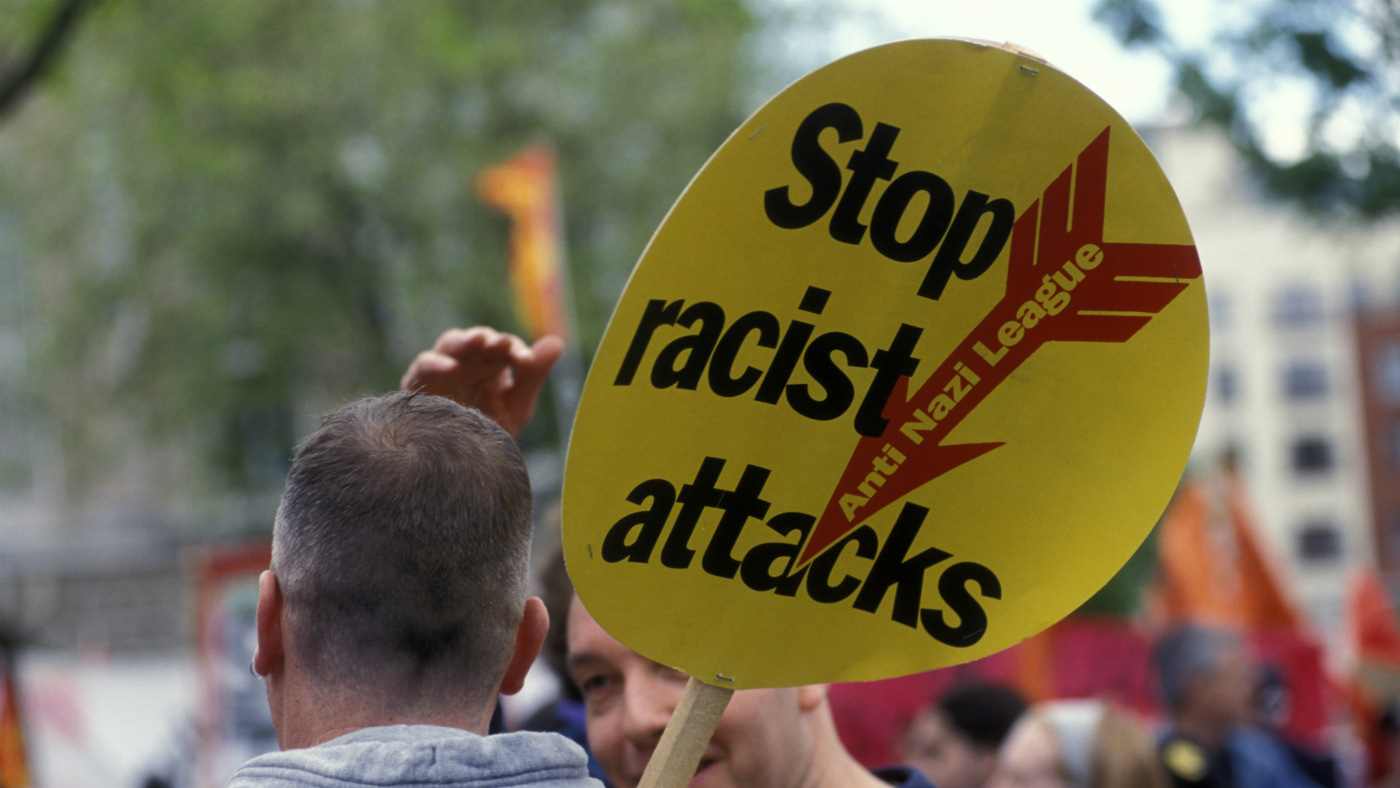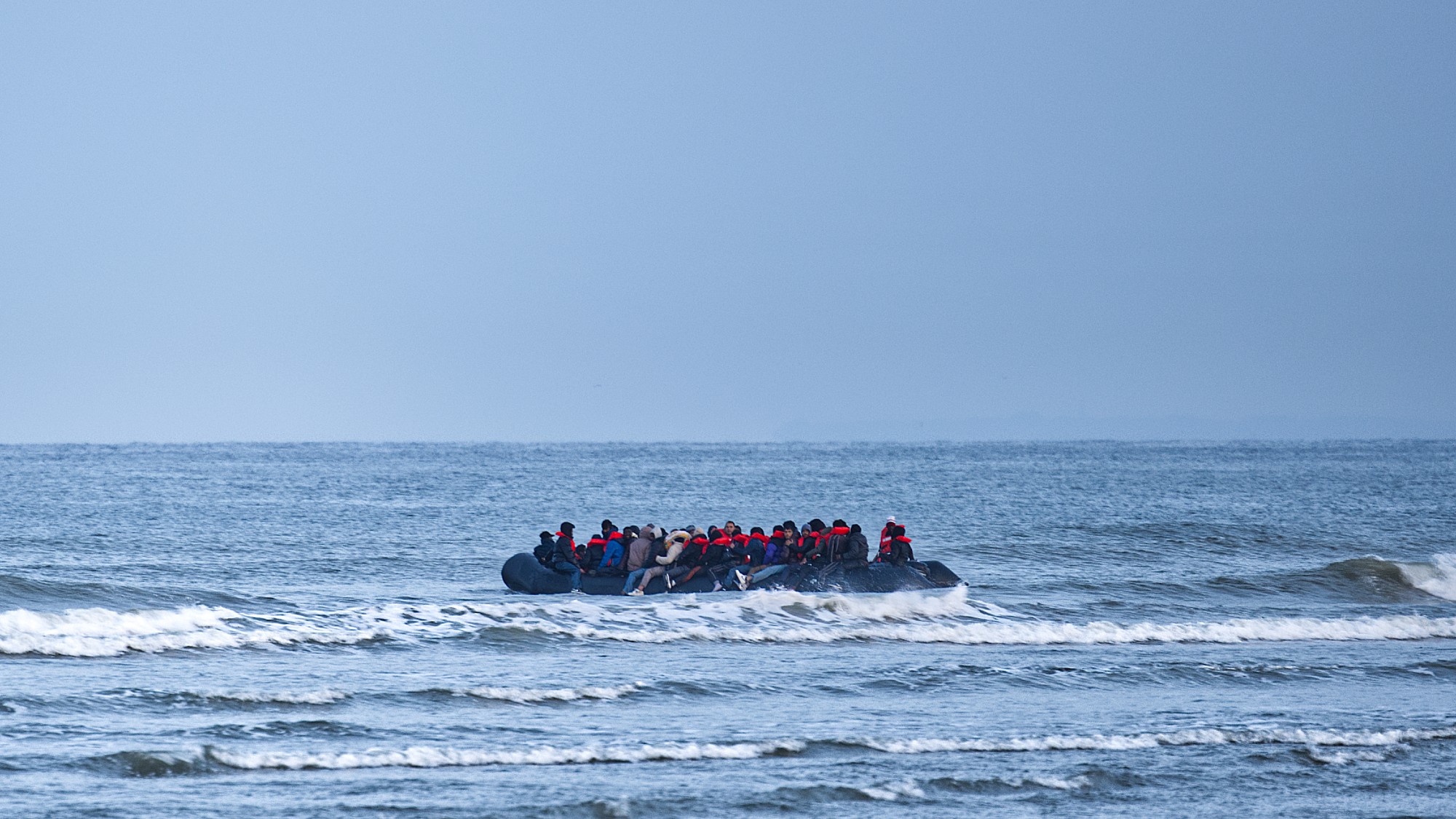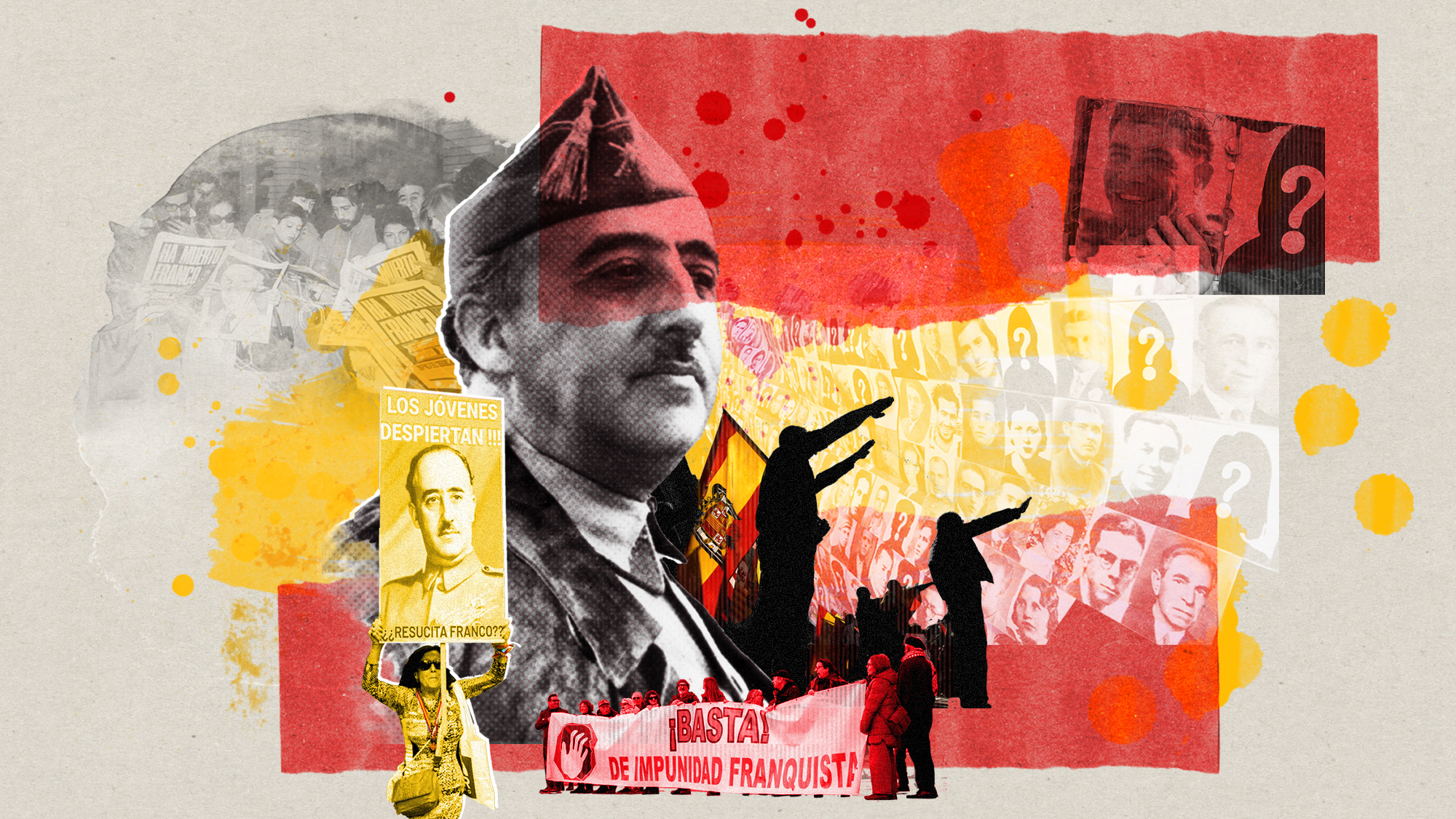Does Britain need an anti-Nazi ‘resistance movement’?
Anti-Nazi League says need for campaign opposing racism, Islamophobia and anti-Semitism is ‘urgent’, but not everyone is convinced

A free daily email with the biggest news stories of the day – and the best features from TheWeek.com
You are now subscribed
Your newsletter sign-up was successful
The Anti-Nazi League has joined forces with a number of high-profile politicians to call for a national campaign to counter the “rising threat of racism and fascism in the UK”.
The group, which was founded in 1977 in response to the rise of the far-right National Front, wrote in a letter to The Guardian that Britain “needs a broader-based, imaginative and vibrant campaign that unequivocally opposes [the] racism, Islamophobia and anti-Semitism” raised in the country’s political discourse by figures such as Tommy Robinson.
The letter warns of the danger posed by the former English Defence League leader, who was jailed this year, and “his international backers”, and claims similar movements in Germany, Austria, Hungary and Italy highlight the urgent need for the formation of a national anti-fascist movement.
The Week
Escape your echo chamber. Get the facts behind the news, plus analysis from multiple perspectives.

Sign up for The Week's Free Newsletters
From our morning news briefing to a weekly Good News Newsletter, get the best of The Week delivered directly to your inbox.
From our morning news briefing to a weekly Good News Newsletter, get the best of The Week delivered directly to your inbox.
“Echoes of the 1930s are all too real,” it adds.
Earlier this month, shadow chancellor John McDonnell warned that “we no longer ignore the rise of far right politics in our society” and added: “It’s time for an Anti-Nazi League-type cultural and political campaign to resist”.
Advocacy group Hope Not Hate reported in March that “far-right terrorism is on the rise in the United Kingdom” and some of the facts support this claim. In 2017, 28 far-right sympathisers were arrested on or convicted of terrorism-related charges and other offences - a record high.
However, not everyone agrees fascism is becoming mainstream. Time Magazine reports that, although their online presence may have grown, “membership and active support for far-right groups such as the British National Party and Britain First is at its lowest point in 25 years”.
A free daily email with the biggest news stories of the day – and the best features from TheWeek.com
Al Jazeera suggests the far-right movement is in fact far smaller than it appears, and its size and impact are inflated by “excessive” media coverage.
The news channel notes that Darren Osborne, a far-right extremist who killed one person and injured eight more in a vehicle attack on Finsbury Park mosque last year, “had been in email contact with [Robinson] just days before the attack”. Yet “British broadcasters saw nothing wrong with interviewing Robinson, giving him air time the day after the attack and again after the trial concluded”, says the channel.
Al Jazeera concludes: “And when the broadcast media, even with the best of journalistic intentions, put the likes of Tommy Robinson on their air so that they can grill him, they find they cannot do so without giving him the exposure he craves.”
Justin Murphy, assistant professor at the University of Southampton, echoes the broadcaster’s findings: “We found that media coverage is a predictor of public support in future periods, but we did not find any evidence that public support is a predictor of media coverage.
“So there appears to be a unique causal effect between media coverage of these far right-wing populist parties and their rise in electoral significance.”
-
 6 of the world’s most accessible destinations
6 of the world’s most accessible destinationsThe Week Recommends Experience all of Berlin, Singapore and Sydney
-
 How the FCC’s ‘equal time’ rule works
How the FCC’s ‘equal time’ rule worksIn the Spotlight The law is at the heart of the Colbert-CBS conflict
-
 What is the endgame in the DHS shutdown?
What is the endgame in the DHS shutdown?Today’s Big Question Democrats want to rein in ICE’s immigration crackdown
-
 How corrupt is the UK?
How corrupt is the UK?The Explainer Decline in standards ‘risks becoming a defining feature of our political culture’ as Britain falls to lowest ever score on global index
-
 The high street: Britain’s next political battleground?
The high street: Britain’s next political battleground?In the Spotlight Mass closure of shops and influx of organised crime are fuelling voter anger, and offer an opening for Reform UK
-
 ECHR: is Europe about to break with convention?
ECHR: is Europe about to break with convention?Today's Big Question European leaders to look at updating the 75-year-old treaty to help tackle the continent’s migrant wave
-
 Is a Reform-Tory pact becoming more likely?
Is a Reform-Tory pact becoming more likely?Today’s Big Question Nigel Farage’s party is ahead in the polls but still falls well short of a Commons majority, while Conservatives are still losing MPs to Reform
-
 X’s location update exposes international troll industry
X’s location update exposes international troll industryIn the Spotlight Social media platform’s new transparency feature reveals ‘scope and geographical breadth’ of accounts spreading misinformation
-
 Revisionism and division: Franco’s legacy five decades on
Revisionism and division: Franco’s legacy five decades onIn The Spotlight Events to mark 50 years since Franco’s death designed to break young people’s growing fascination with the Spanish dictator
-
 Taking the low road: why the SNP is still standing strong
Taking the low road: why the SNP is still standing strongTalking Point Party is on track for a fifth consecutive victory in May’s Holyrood election, despite controversies and plummeting support
-
 The party bringing Trump-style populism to Japan
The party bringing Trump-style populism to JapanUnder The Radar Far-right party is ‘shattering’ the belief that Japan is ‘immune’ to populism’